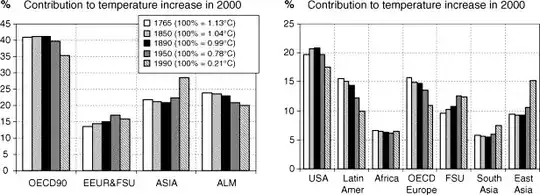Yes.
tl;dr:
Here is a study that shows it:
Findings show no substantial gender differences in level of activism, but reveal that women engage in significantly higher rates of environmentally friendly behavior
But before, it should be noted that there is a difference between the women who are affected more by climate change and the women who supposedly 'consume more sustainably than men'.
Women are affected by climate change more than men in poor countries, where the traditional societal order is still in place. As said here:
Women are particularly vulnerable to climate change because they are more prone to the
adverse impacts from climate change. Their limited adaptive capacities arise from prevailing
social inequalities and ascribed social and economic roles that manifest itself in differences in
property rights, access to information, lack of employment and inequal access to resources.
Further, changes in the climate usually impact on sectors that are traditionally associated with
women, such as paddy cultivation, cotton and tea plantations, and fishing. This means
increased hardship for
women.
Or as described here, by the 2004 Nobel Peace Prize winner:
"Many destructive activities against the environment disproportionately affect women, because most women in the world, and especially in the developing world, are very dependent on primary natural resources: land, forests, waters," said Wangari Maathai of Kenya.
"Women are very immediately affected, and usually women and children can't run away," said Maathai, who won the 2004 Nobel Peace Prize for her work on sustainable development.
But, in those places, the household is not ruled by women, especial economic aspects of it, such as what work to do, what crops to grow or how to utilize the small amount of natural resources available. More over, the main impact on man made climate change (if exists) is done by developed countries, such as the U.S. Europe and east Asia (S.Korea, China, Taiwan and Japan). Those are not the places where the described affects on women happen. One source for this is here.

In the societies where women are greater affected by the climate change, they are not heads of households and are affected exactly because of the fact that they have no economical or social power. The societies where women actually have economic and social power are the greatest contributes to climate change. Women head approximately 40% of house hold in the US:
In the CEX in 2008, 53% of married
householders were men, down from 85% in 1994. Similarly, in the CPS the share of
married male householders fell from 88.6% in 1994 to 61.8% in August 2009.
source, pg.7
And in many more households women have a big say at decision making. Those are the places where women can make environmental friendly decisions, while they are not affected by environmental issues differently than their male counterparts.
I've also conducted a small examination of the ratio of female-male among board members in several prominent international environmental organizations. The results are:
Greenpeace: 3 female, 4 male
World Wildlife foundation (WWF), the one with the cute panda simbol:
- Staff: 3 female, 4 male
- Board Members: 2 female, 16 male
- Honorary directors: 3 female, 6 male
total: 7 female and 26 male
Green Cross, founded by Mikhail Gorbachev:
- Board members: 0 female, 10 male
- Honorary Board: 5 female, 9 male
- staff: 5 female, 6 male
total 10 female, 15 male
Plant a tree today (Staff members): 8 female, 13 male
World Resource Institute, Al Gore's organisation: 10 female 24 male
In total women consist 31.67% of examined organisation's staff and board members (25% if only board members and honorary board members are considered), which is higher than the 16.1% on fortune 500 companies boards, and even higher that the European standard, which has to be enforced, unlike those organisations that don't have quotas. This can show that women do have greater concern for environmental issues. Or on the other hand that environmental organisations are more open to accept women in their leadership.
